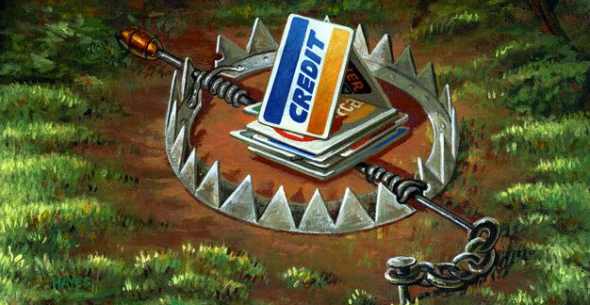.jpg)
When is something that's good for you also bad for you?
Well, that's what can happen with compound interest. It's good when you are saving, but when you use your credit card, it may be like paying for something twice.
Compound interest is good when the bank pays you. Most savings accounts pay compound interest so when you earn interest each month, it's added to your total. The following month you earn interest on the new, higher total.


For example, if you put $1,000 into a long-term savings plan that pays you three percent interest per month, you will have about $1,820 at the end of 20 years even if you don't save another dollar. But when you look at credit cards, compound interest can cost you dearly. Let's say you bought a new computer for $1,000 with your credit card. You can afford to pay only the minimum payment of $30 each month, but the interest rate on your credit card is 20percent a month. It will take you more than four years to pay for the computer, which ends up costing you $1,472. Not such a great deal after all!
So look for high rates of interest when you are saving money. Certificates of deposit that require you to keep your money in the bank over a certain period of time often pay higher interest. The key is to make sure it's compound interest.

But avoid building up compound interest on your credit cards or loans. If you don't pay off your full credit card balance regularly, think about cutting up your card until you can pay it off in full. When it comes to credit cards, compound interest can mean that you are paying a lot of extra money for whatever you buy.
To help you figure out how much something is really costing you on your credit card, try this useful calculator: http://www.calculatorweb.com/calculators/creditcardcalc.shtml